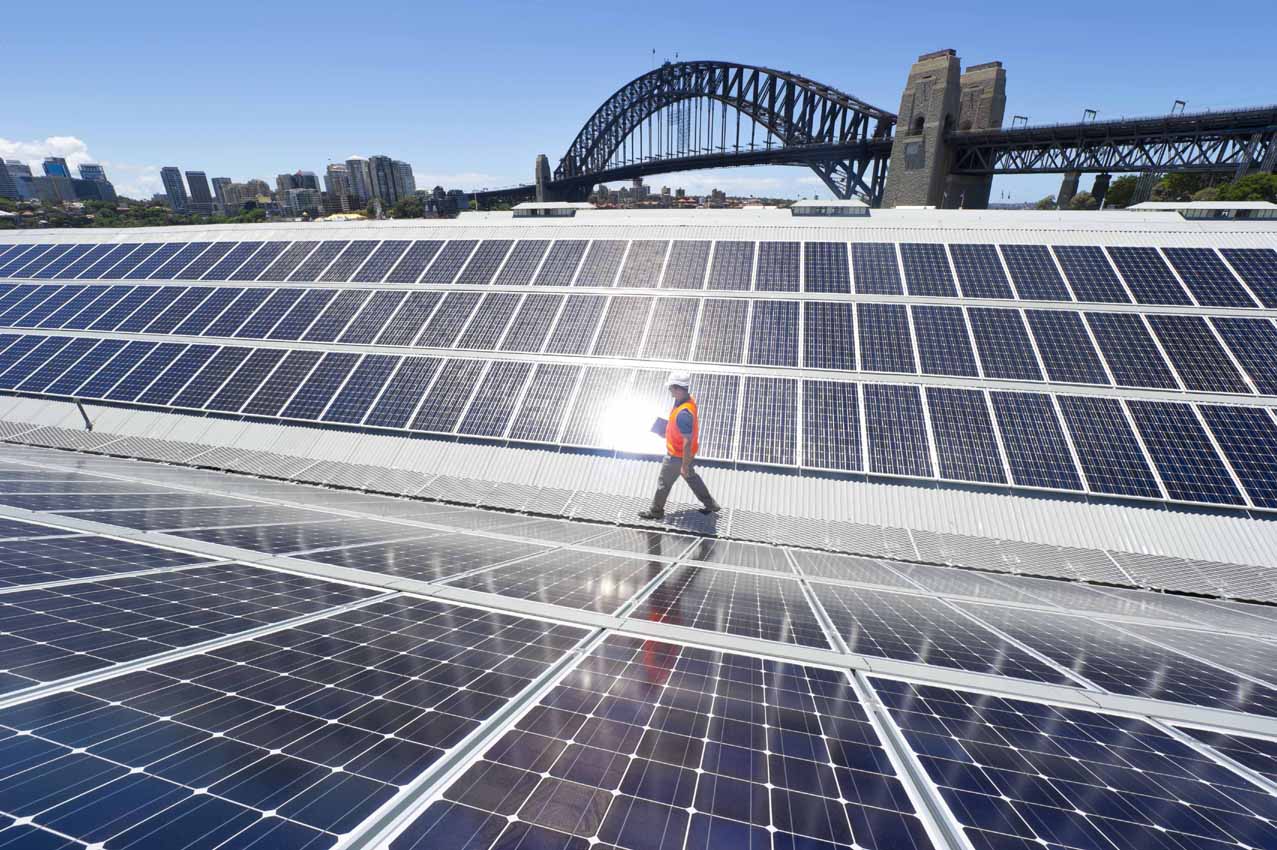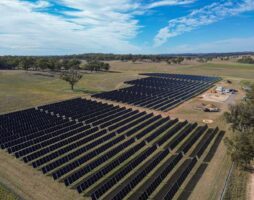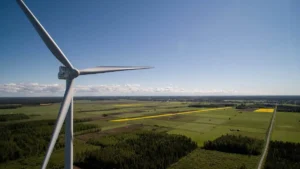Malcolm Turnbull gets it. Last Saturday, after having a test drive of a Tesla Model S electric vehicle in California – an experience he described as ‘exhilarating’ – he declared that an “energy revolution” was upon us.
He noted how battery storage could turn the energy market upside down, reducing peaking power requirements, optimising the use of renewables and in some cases enabling consumers to go off the grid altogether.
“The excitement of technology in the Bay Area is exhilarating…..but not quite as palpable as the jolt you feel when you hit the accelerator!” he wrote. We don’t have a video of Turnbull’s test drive, but if he was in the passenger seat, it might have looked something like this.
Steve Ciobo gets it. The senior Abbott MP, a parliamentary secretary to both Julie Bishop and Andrew Robb, told ABC last week that the combination of solar and battery storage technologies was happening so quickly that Australians were ready to leave the grid. “There is massive change happening,” he said.
The CSIRO gets it. Its landmark report a year ago suggested that nearly one half of Australia’s energy requirements will be met by on-site generation, and up to one third of customers could leave the grid. The only question was when, and the utilities respond.
The biggest utilities in Europe and the US get it. E.ON is splitting itself in two so it can concentrate on distributed energy, and not centralised fossil fuels. NRG has put all its growth options into solar, storage, EVs and micro-grids.
Most Australian network operators get it. They predict that it will be cheaper for regional users – already heavily cross-subsidised by city-dwellers – to use solar and storage to get off the grids. Whole communities could focus on micro grids, and that will eventually flow to major centres and capital cities.
The solar industry gets it. The Australian Photovoltaic Institute said in a submission on Tuesday – and many times previously – that technology change is happening fast, and it will provide lower cost, lower risk and more reliable solutions to the current reliance on elongated grids.
Many financial market analysts get it. UBS says solar and storage may make it cheaper for people in suburban Sydney to be off the grid by 2018. Citigroup says battery storage will be at grid parity within years, and will hasten the demise of fossil fuels. Deutsche Bank says solar costs will fall another 40 per cent within two years, and solar plus storage parity will be widespread, including in Australia.
The big energy retailers in Australia get it. EnergyAustralia last year acknowledged that solar parity has been reached, storage is coming and micro-grids are on their way – bypassing or at least challenging – traditional utility businesses.
Origin Energy and AGL Energy are busy putting the finishing touches of a new marketing campaign on solar, storage, and possibly EVS. The immediate aim is to lock in customers for the long term – churn is one of the biggest costs they face – but at least one of them has a Plan B, à la E.ON and NRG, should the transformation be as quick and dramatic as some suggest.
The Australian Energy Regulator gets it. Last year, it warned that network models need to be changed to allow greater access for customers to participate in the market and to address the “prosumer revolution”. If barriers remain, then prosumers – those generating and storing their own energy – will “walk away” from the grid.
NSW Environment Minister Rob Stokes gets it. He says solar technology is providing households with greater autonomy in managing their energy needs and is helping reduce our State’s reliance on traditional energy sources.
“Solar panels are revolutionising the Australian electricity market,” Stokes wrote in 2013. “The pace of change is faster than official projections, and the effects on customers and energy companies are profound and irreversible.”
And the newly elected Queensland Labor government gets it. Last week, before its unexpected poll victory, it unveiled an ambitious renewables target that focused on getting a million Queensland houses connected to solar, more large-scale renewables, and embrace the new technologies that could cut costs, create jobs, and provide export income for the state.
Everyone, it seems, gets it. Everyone that is, except for those who matter, such as Prime Minister Tony Abbott and energy minister Ian Macfarlane in particular. Both are wedded to the idea of centralized fossil fuel generation.
Both believe in coal, say we should exploit every large molecule of gas, damn the carbon price and demonise and rubbish renewable energy sources, at the same time as two million households sign up for solar, and 15,000 more do so every month. Installers says nearly half of new enquiries want to know about battery storage too.
It reminds us of another technology revolution about 20 years ago. As many people took up the internet, many were left struggling to comprehend what a distorted “a” – as in @ – could possibly mean. Even they catch up, eventually, as this ad in Super Bowl suggests. That’s right, an EV ad in the most watched TV event in the most heavily fossil fuel dependent nation on Earth.
The sad irony is that Australia is at the pointy end of the energy revolution that is sweeping the globe, even if the government does not know it, or will not recognise it. The first reason is because we have the highest electricity prices – not because of coal, whose health impacts are not priced into the market, or renewables, but because of the massive cost of delivery. And Australia has some of the best solar resources, and some clever technical people. And the people love solar.
The question is, what to do about it. Ciobo used the prospect of grid defections as an argument to support the former Newman’ government’s plan to lease the state’s energy assets. Best to get the assets off the government books before they lose value.
The APVI wants the rapid take-up of enabling technologies to be recognized by energy regulators, who are about to rule on network spending plans for the next 5 years. As we reported on Tuesday, the APVI thinks the networks are still married to the old ways of operating, despite their talk of micro-grids and all that, because it is easier for them to operate that way.
But allowing them to lock in expenditure, means that customers will pay for yet more grid extensions and upgrades of the poles and wires network that they do not need.
Already, $45 billion of spending in the last five years is locked in to customer bills, and at least a third of that probably wasn’t needed, says the University of Technology. Australia has been too busy building a bigger dumb grid, rather than a smaller, smarter and cheaper grid.
That will rebound on network operator, owners and customers soon. Loading more delivery costs (via the network) simply makes the prospect of going off-grid even more attractive. As attractive an idea as it is for some, to do so en masse would have massive social equity issues, and would result in massive over-capitalisation.
It’s good that a lot of people get it, but until the people making policy – from the PM down through the energy minister and into the federal and state pricing, competition and rule-making regulators, many of whom share the same views as Abbott, Macfarlane and their chosen advisors, then the whole industry is facing something of a disaster.







